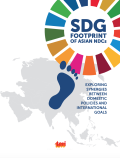
This report explores the linkages of Nationally Determined Contributions (NDCs) and the Sustainable Development Goals (SDGs) and captures if these linkages are evident in countries’ NDCs. It offers the first essential step in further strengthening institutional linkages at multiple governance levels for achieving SDGs and NDCs simultaneously and efficiently.
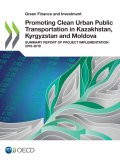
This report presents the objectives, methodology, procedures and main findings of the OECD project "Strengthening public finance capacity for green investments in the EECCA countries". Between 2016-19, the project aimed to help set the partner countries (Kazakhstan, Kyrgyzstan and Moldova) on a sustainable path of development by reducing the energy and carbon intensity of their economies.
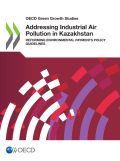
This publication shows that Kazakhstan’s environmental payments for industrial air pollutants, as currently applied, impede energy efficiency and pollution abatement with heavy-handed non-compliance responses and focus on rising revenues. They also add to the cost of doing businesses in the country, with limited environmental benefit. In the spirit of the Polluter-Pays Principle, much more regulatory reform on environmental payments are needed. This report provides guidelines for reform.
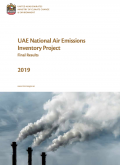
This report presents the results from Phase II of the Air Emissions Inventory Project. It is the first national air pollutant emission inventory carried out for the whole country. The emissions inventory shows that emissions from the stationary energy and transport sectors dominate the emission sources. For particulate matter, the dominant source is industrial processes and product use (IPPU). Although the agriculture and waste sectors have a minor contribution to the country’s overall emissions, their role is more significant in terms of greenhouse gas emissions. However, of particular note are the estimated high non-methane volatile organic compounds (NMVOCs) emissions from municipal solid waste disposal on land.
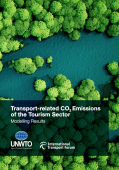
This report provides evidence of the CO2 emissions from tourism and the implications of the different modes of transport. It provides insights into the evolution of tourism demand across the different global regions up to the year 2030. It also presents the expected transport-related CO2 emissions of the tourism sector against the current ambition scenario for the decarbonisation of transport.
